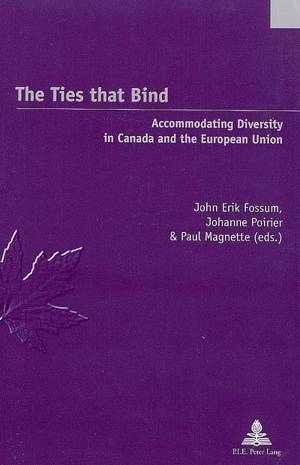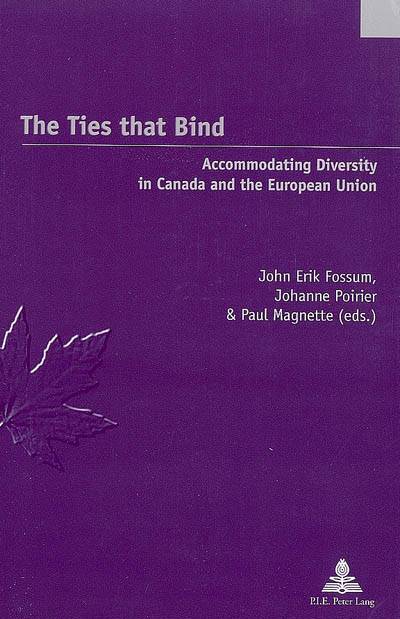
- Retrait gratuit dans votre magasin Club
- 7.000.000 titres dans notre catalogue
- Payer en toute sécurité
- Toujours un magasin près de chez vous
- Retrait gratuit dans votre magasin Club
- 7.000.0000 titres dans notre catalogue
- Payer en toute sécurité
- Toujours un magasin près de chez vous
Description
Canadian studies
Modern states - and novel multinational polities such as the European Union - have to contend with greater degrees, and more complex forms, of diversity. What elements keep complex, « post-national », political entities together ? What are the ties that bind people together in a world where they cannot rely on the safety of established national identifications (if they ever could) ?
This collection of essays by leading political scientists, philosophers and legal academics from Canada and Europe provides a transatlantic dialogue on the ways in which complex states (such as Canada) and non-states (the EU) may broach the modes of difference and diversity that confront them. Authors engage in insightful « diagnoses » of contemporary forms and modes of diversity, as well as critical appraisals of a number of normative responses meant to answer these challenges. These responses range from » reasonable accommodation » and multinationalism to cosmopolitanism. They include the recognition of « post-national », « multinational » or « deterritorialised » democracy and constitutional patriotism, as well as plural or « denationalised » citizenship.
Spécifications
Parties prenantes
- Auteur(s) :
- Editeur:
Contenu
- Nombre de pages :
- 362
- Langue:
- Anglais, Français
- Collection :
- Tome:
- n° 16
Caractéristiques
- EAN:
- 9789052014753
- Date de parution :
- 02-03-09
- Format:
- Livre broché
- Format numérique:
- Trade paperback (VS)
- Dimensions :
- 150 mm x 220 mm
- Poids :
- 499 g

Les avis
Nous publions uniquement les avis qui respectent les conditions requises. Consultez nos conditions pour les avis.






